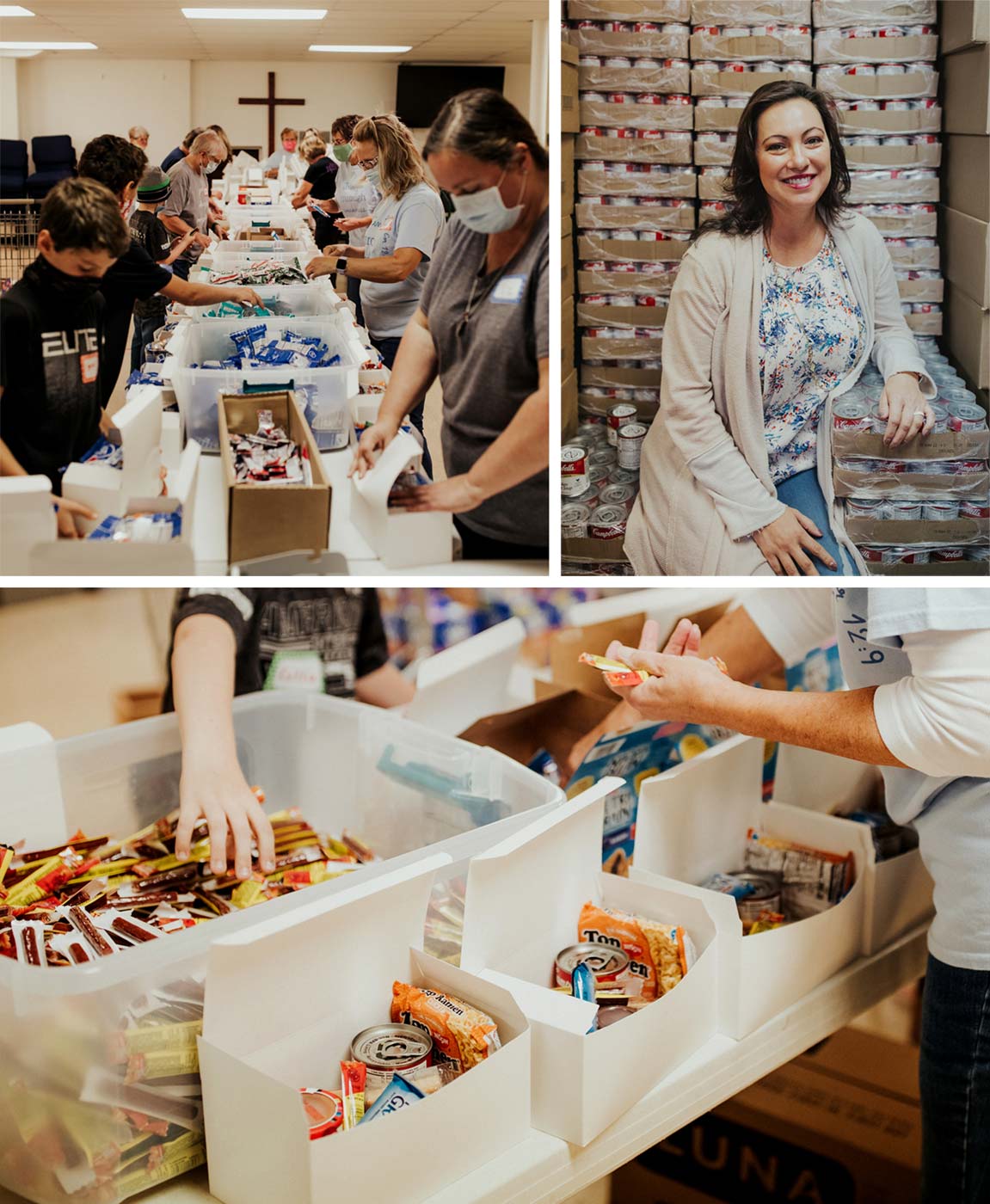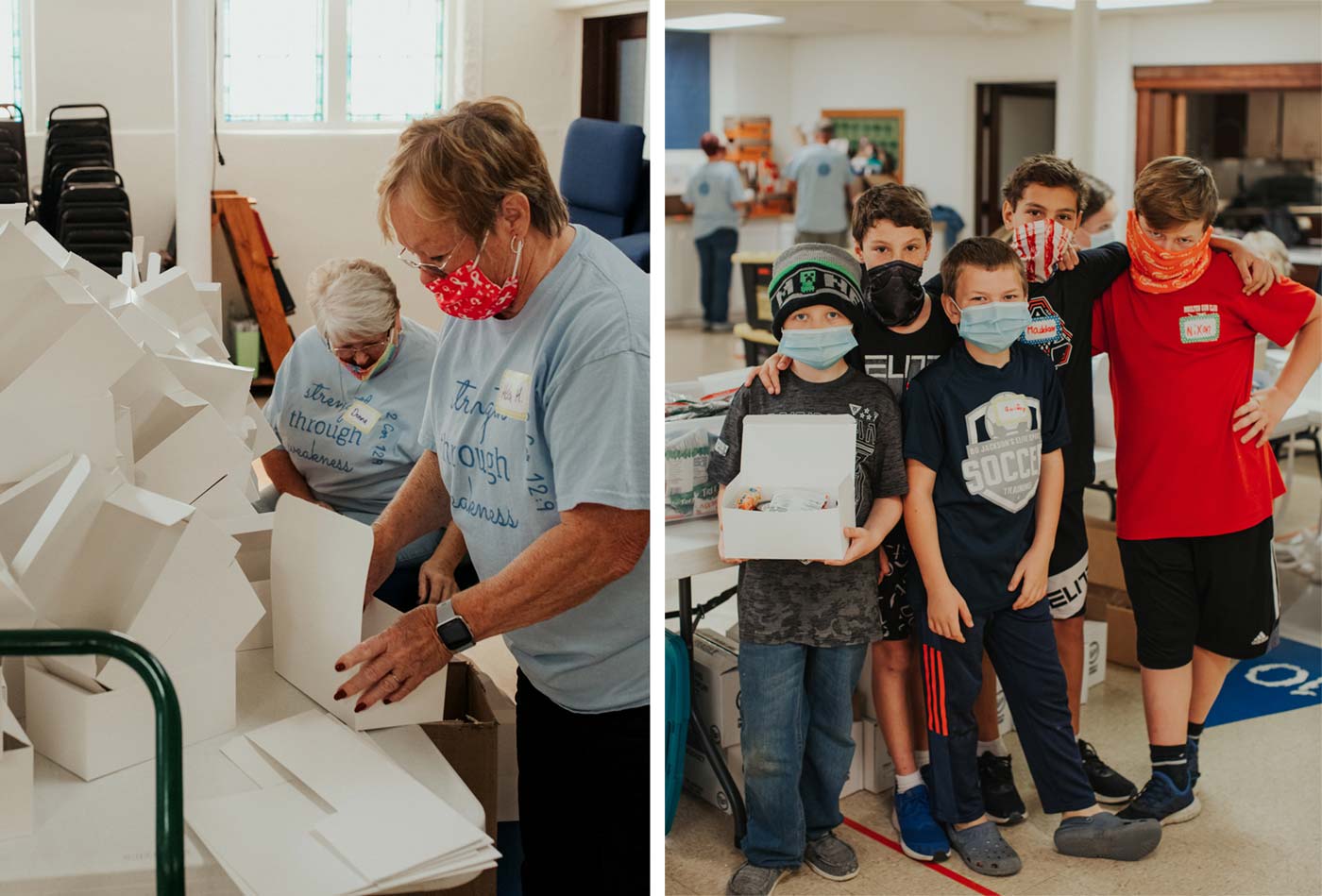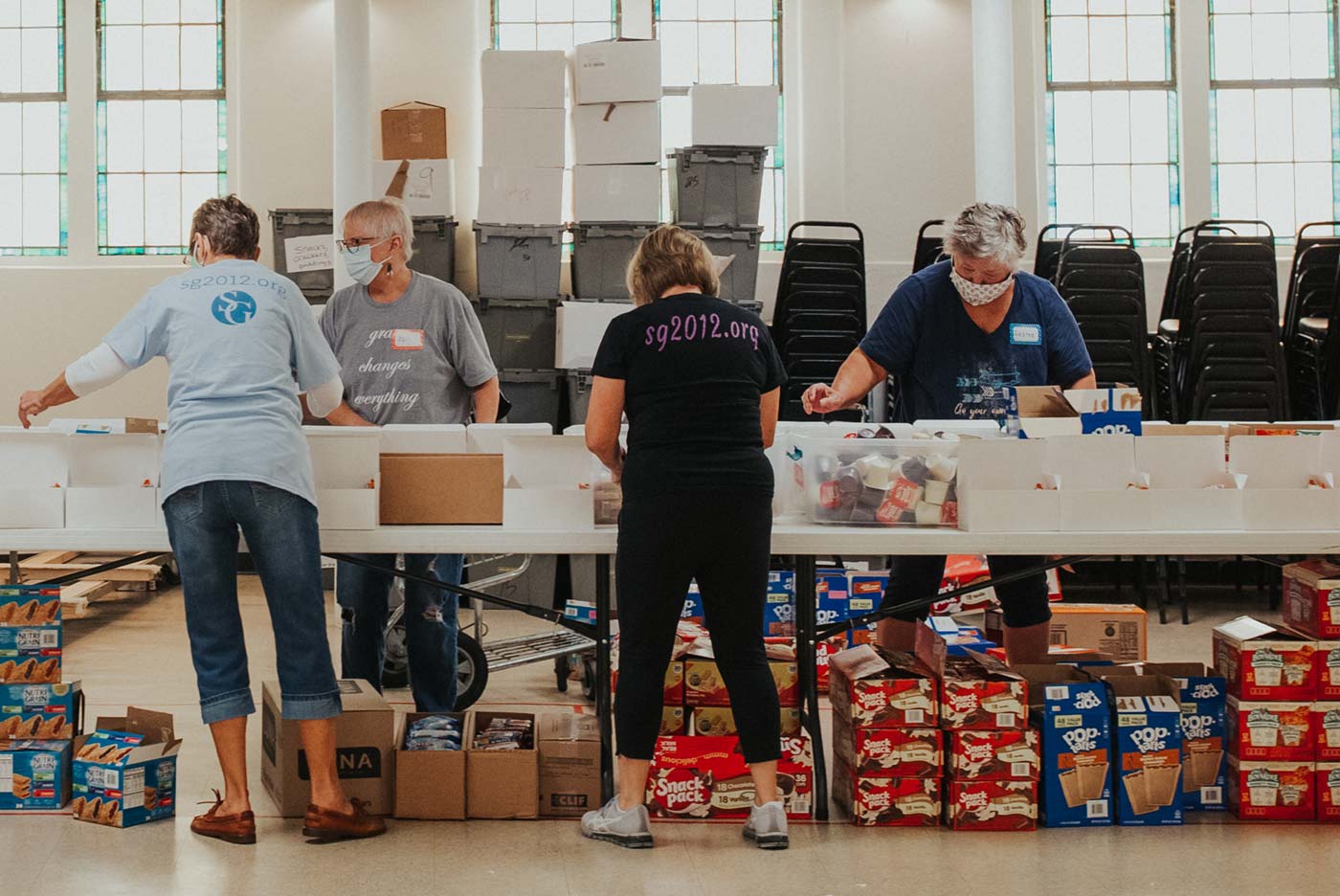Sufficient Grace Keeps Kids Fed After School Lets Out
Tracy Kronk’s eyes light up as she recounts an email she received from a caregiver about the impact of her 9-year-old nonprofit, Sufficient Grace, on the woman’s step-grandson. Kronk, a married mother of four, is the founder and executive director of the organization, which provides non-perishable food for weekend and after-school consumption to food-insecure students in pre-K through 12th grades in Madison, Clark and Union counties.
After one of the boy’s parents was placed in prison and another in drug rehab, the step-grandmother took over care of the child. The woman told Kronk that he had faced dire circumstances with trauma that left a painful mark, plagued by nightmares centered on lack of access to necessities like food.
Once in the caregiver’s home, the child began receiving boxes of food from Sufficient Grace to tide him over on evenings and weekends. The woman told Kronk she placed the boxes on the boy’s dresser to soothe him at night when he was startled awake.
“I’m looking at my computer, crying,” Kronk recalls about the exchange. “How does a box of food—which sometimes is tedious and routine for me—how does it mean so much to someone else? I hope I always remember that little boy and what that food meant to him.”
With a mission of “helping students meet their food needs outside of school,” the West Jefferson nonprofit engages with local school districts to identify students in need. A stalwart group of volunteers meets at the organization’s headquarters at the United Methodist Church in West Jefferson to pack food boxes, which are then delivered directly to educational institutions for doling out to students.

Left top: Volunteers gather weekly to fill food boxes at the West Jefferson United Methodist Church. Right top: Tracy Kronk, founder of Sufficient Grace; Bottom: Boxes contain non-perishable food items for food-insecure students.
Prior to the COVID-19 pandemic, Sufficient Grace reached more than 800 children in nine school districts last year. For younger children, the nonprofit supplied three boxes of pre-packed non-perishable food each week. It also offers what Kronk calls a “grocery model” to middle and high school students, enabling them to choose food to take home from pop-up pantries in their school buildings. Importantly, this includes personal hygiene items like soap, shampoo, toothpaste and female sanitary products.
Due to the complexities of COVID-19, Kronk and her team have scaled their operation down to one food box per week—distributed on Fridays—to help students through the weekend. With remote and hybrid learning in place, enrollment in Sufficient Grace’s programming is down. However, Kronk says she knows the need is still there and will most likely even increase.
“We’re around 650 right now,” Kronk says on a mid-October day about the number of students the organization serves. “Two weeks ago, we had 120. I anticipate our numbers will grow as people settle into the new reality of school. I’m guessing we will get back to 800 quickly and how far above that we go, I don’t really know.”
The pandemic’s grip on the U.S. economy has left millions more Americans hungry compared to rates in years prior. Demand at food pantries, including those in Central Ohio, has soared and enrollment in federal nutrition assistance funding is growing rapidly.
Currently, Kronk says, there’s not much information available regarding kids who may need help but aren’t receiving food due to remote or shortened in-person schooling. “I worry about kids who were in the program previously but are now being homeschooled,” she adds.
According to Melissa Canney, student support specialist at London City Schools, Sufficient Grace has not only helped students in her district meet nutrition needs, but it has built trust between students and administrators. “I’m the face of Sufficient Grace in our district,” where about 250 students were aided by the program last year, Canney says. “They see me as a helper.”

Left: Volunteers put together boxes to begin the assembly process. Right: Youth volunteers show the finished product of their labors.
Canney says working with Kronk has been stress-free, evidence of the director’s outstanding management of the nonprofit. “She makes it really easy on schools,” Canney adds. “She says, ‘Tell me how many kids need help, let’s set up a process for delivery,’ and then she provides it.”
Kronk launched Sufficient Grace after a life-changing conversation with a student while volunteering in one of her children’s classrooms. The elementary-aged boy nonchalantly commented to Kronk that food was only available to him at school through his participation in the free and reduced-price breakfast and lunch program. He said he didn’t enjoy weekends as there wasn’t much to eat in his house.
“I sat next to him for a measurable amount of time with my mouth hanging open,” Kronk says about the exchange. Soon, she started bringing non-perishable foods to slip into his backpack. Within a month, there were more than 30 other children identified by the school who needed the same support.
A slew of volunteers and donors have kept Sufficient Grace afloat over its years. “I’ve been really blessed,” Kronk says. “It takes well over $150,000 a year” to pay for the food and supplies. “And, to think that amount comes in because people are kind is amazing. People pray for me and they donate money.”
“I guess the Lord wants me to go on another year,” Kronk adds optimistically.
- Learn more about Sufficient Grace and how to help at sg2012.org.





